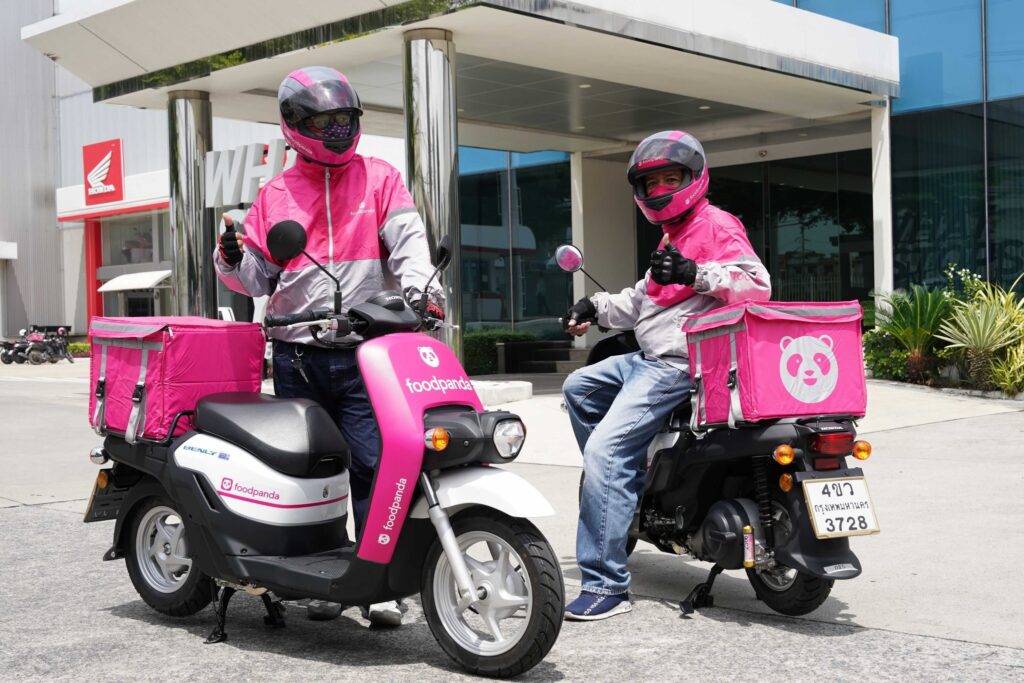After over a decade in Thailand, Foodpanda is officially exiting the market on May 23, 2025. The food and grocery delivery platform, owned by Germany’s Delivery Hero SE, once dominated the Thai delivery space — but rising losses and fierce competition have now forced a strategic withdrawal. This marks one of the most high-profile exits in Southeast Asia’s rapidly evolving delivery landscape.
Early Expansion and Saturation
Foodpanda entered Thailand in 2012, riding the wave of digital convenience and the app economy. It was among the first players to offer nationwide service, eventually operating in all 77 provinces and delivering everything from street food to pharmaceuticals.
But competition intensified. Local apps like Lineman Wongnai tailored their offerings to Thai consumer behavior, while regional giants like GrabFood brought extensive infrastructure and user incentives. Despite early traction, Foodpanda struggled to maintain market share.
Achievements and Financial Pressures
By 2020, Foodpanda had become a household name in Thailand. It had invested heavily in marketing and logistics, employing tens of thousands of riders and partnering with over 100,000 merchants. However, scale did not translate into profitability.
From 2014 to 2023, Foodpanda Thailand reportedly accumulated losses of over 13.8 billion THB, or approximately $378 million USD. These mounting losses, coupled with stagnating growth and decreasing order volumes, eroded investor confidence.
Delivery Hero, Foodpanda’s parent company, has been pursuing profitability across its global portfolio. Thailand’s increasingly competitive delivery market — valued at over $2.35 billion USD — was no longer a priority. As of 2024, Foodpanda held less than 15% market share, far behind Lineman Wongnai (44%) and GrabFood (41%).
Editorial Insight: A New Era for Delivery in Thailand
Foodpanda’s exit signals more than just a strategic retreat — it reflects the maturing phase of Southeast Asia’s on-demand economy. What was once a land grab for users has now shifted to profitability, localized innovation, and sustainable logistics.
Thailand’s delivery ecosystem is now dominated by players that better understand domestic market behavior and economics. Foodpanda’s inability to localize and differentiate proved costly.
This exit also highlights a broader trend: large international delivery firms are reassessing their regional presence, prioritizing profitability over presence. Delivery Hero has already pulled out of Denmark, Slovakia, Ghana, and other markets under similar rationale.
Future Focus: What Comes Next?
Foodpanda’s departure leaves a gap that will likely be filled by local or regional platforms. Lineman Wongnai and GrabFood are expected to consolidate market share, while dark kitchen startups and niche platforms could emerge to address hyperlocal demand.
Delivery Hero will retain operations in other Southeast Asian markets, including Singapore and the Philippines, but has signaled it will continue evaluating underperforming territories. For the Thai food delivery market, consolidation and local innovation will shape the next chapter.
Foodpanda may have pioneered convenience in Thai delivery, but in today’s market, speed alone isn’t enough. Success now demands cultural relevance, data agility, and fiscal discipline — all things Thailand’s new delivery leaders seem ready to deliver.















